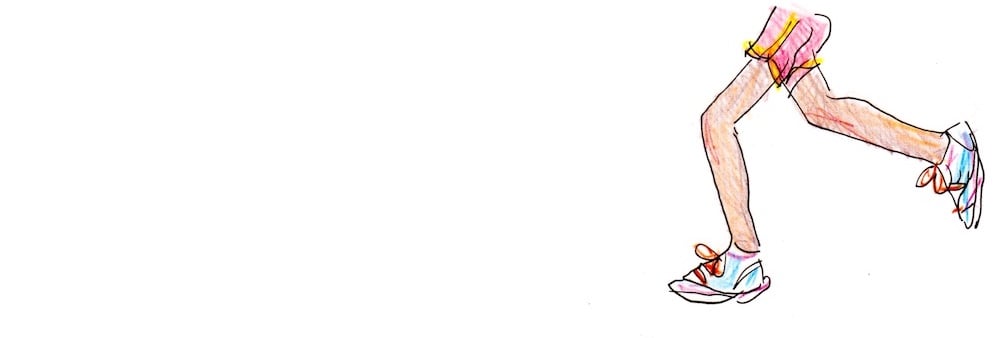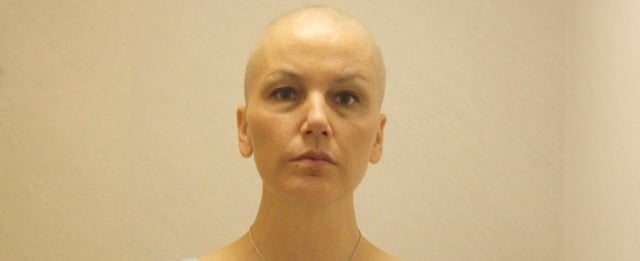kottke.org posts about health

If you don’t like exercise or are getting sick of your workout routine, a few recent essays will keep you in good company. Last fall, Aja Frost wrote I Was (Am?) Addicted to Exercise for the newsletter Platonic Love:
I never deviated from or relaxed my exercise routine; it was sacred. As long as I exercised, my body wouldn’t slip back into its old state. I’d be safe.
And last week, Rod Gilchrist wrote I Was a Running Addict for The Guardian:
The trouble is, once you’ve got the running bug, it’s hard to scale back, even when your body demands it.
And a few days after that, The Guardian also ran I Thought Fitness Was My Superpower. Then I Realized It Was a Ball and Chain, by Sam Pyrah:
I tried to push through it – until, suddenly, neither my body nor my brain could find a reason to carry on. I slowed to a walk. I stopped my watch. I sat down and had a little cry, the sweat drying on my back. Then I walked home.
The essays remind me of a concept called Positive Addiction (and a 1985 book of the same name) — the idea that it’s possible to be truly addicted to things that are good for you. I’m an almost-daily runner, and I do understand how it could be described as addiction, although for now I just love it. Maybe a key is that I don’t run especially long distances. And it’s a relatively new habit. But I guess there’s (hopefully) still plenty of time for it to sour.

A thought-provoking post from Laurie Frick: “Will a Data-Selfie Boost Your Immune System?”
In the future I imagine human data portraits manifested from reams of personal tracking data gathered invisibly as we move thru the day. Genuine data-selfies. We are so close to gathering every possible morsel of data about us, imagine what could be possible once you owned every bit of data gathered about you. After some thought, I decided it’s more than just seeing personal data and abstract patterns of you. It’s about what these patterns will tell us about ourselves. Data collected about us will unfold a personal narrative and story to reveal a hidden part of us we are trained to ignore, a way to know ourselves and anticipate what comes next. Perhaps seeing the abstract patterns and rhythms of your self-tracking data is a short-cut to mindfulness. A quick and dirty way to boost your immune system, the benefits of meditation and self-reflection without much effort.
Frick makes art out of data. She also made an app called FRICKbits that empowers you to turn your data into art.
The New York Times would like to tell you how to keep your hair during chemo.
Hair loss is one of the most obvious side effects of cancer treatment. Now, a growing number of breast cancer patients are freezing their scalps as a way to preserve their hair during chemotherapy.
The hair-saving treatment, widely used in Europe, requires a specialized frozen cap worn tightly on the head before, during and for a couple hours after a chemotherapy session. The method can be time consuming, expensive and uncomfortable, but numerous women swear by the results.
I was vaguely aware of this option when I was getting ready to undergo the chemo in early 2012. I recall researching it, but I never looked into it seriously. I wonder how the experience would’ve been different had I not emerged from it looking like this:

Clearly, I wasn’t a happy camper.
When I was originally diagnosed with early-stage breast cancer in November of 2011, we didn’t know whether or not I would have to do chemotherapy. But after I had surgery, we knew that I would. Previously, I’d thought, Hey, what’s a little hair? Of course, when you’re told you’re going to go bald, that’s another story. I cried. Not because I was going to lose my hair, but because I would lose my hair and then everyone would know.
I went wig shopping, but I never bought one. The American Cancer Society sent me a hideous free brunette wig that showed up one day in a brown envelope in the mail, and I stuck it in a drawer. I didn’t wrap a scarf around my head like Elizabeth Taylor. Sometimes, I wore my husband’s USMC baseball hat. More often than not, I walked around exposed: I was six-two, I was bald, and I was angry. I felt humiliated, but I did it anyway. I hated that I was sick, yet I was hellbent on refusing to hide the fact that I was. I startled people, and eventually it dawned on me that I wasn’t me anymore, I was The Sick Person, and what everyone saw when they saw me was the looming specter of human frailty.
As far as chemo, it seemed like enough to go through it — the port in the chest, the needle in the hole, the free fall of the drugs — without freezing my head at the same time. But that was me. The cancer fled. My hair grew back. That was that.
2008 article by Clive Thompson on how Weight Watchers is like a RPG (role playing game).
Think about it. As with an RPG, you roll a virtual character, manage your inventory and resources, and try to achieve a goal. Weight Watchers’ points function precisely like hit points; each bite of food does damage until you’ve used up your daily amount, so you sleep and start all over again. Play well and you level up — by losing weight! And the more you play it, the more you discover interesting combinations of the rules that aren’t apparent at first. Hey, if I eat a fruit-granola breakfast and an egg-and-romaine lunch, I’ll have enough points to survive a greasy hamburger dinner for a treat!
Even the Weight Watchers web tool is amazingly gamelike. It has the poke-around-and-see-what-happens elegance you see in really good RPG game screens. Accidentally snack on a candy bar and ruin your meal plan for the day? No worries: Just go into the database and see what spells — whoops, I mean foods — you can still use with your remaining points.
And those 35 extra points you get every week? They’re like a special buff or potion — a last-ditch save when you’re on the ropes.
It’s funny how quaint this seems now…the quantified self and gamification of diet & health is everywhere now. (via @arainert)
This interactive chart from the Washington Post shows how the average body mass index has risen in most countries since 1980. The European men getting comparatively heavier than European women (against the general trend of the rest of the world) is interesting.
Health Month is a game designed to help you improve your health.
There are about 50 different kinds of rules. Half of them are rules about what to avoid - things like alcohol, white flour, artificial sweeteners, and illegal drugs. And half of them are rules about what you do more of - things like exercise, sleep, greens, and multivitamins. Choose however many you like, and ignore the rest (you can always add more next month, right?). After choosing your rules, you have the option of making a promise to yourself about how to reward yourself if you stay in the game all month, or to build in consequences if you don’t make it. It’s all about self-accountability, in public. It works.
Well, we kinda knew that. But a recently published study indicates that regularly sitting for long periods of time — say, in front of a computer writing or programming or reading kottke.org — increases your risk of heart disease even when you augment all that sitting with regular exercise. Yipes!
Men who spent more than 23 hours a week watching TV and sitting in their cars (as passengers or as drivers) had a 64 percent greater chance of dying from heart disease than those who sat for 11 hours a week or less. What was unexpected was that many of the men who sat long hours and developed heart problems also exercised. Quite a few of them said they did so regularly and led active lifestyles. The men worked out, then sat in cars and in front of televisions for hours, and their risk of heart disease soared, despite the exercise. Their workouts did not counteract the ill effects of sitting.
(via waxy)
Pop quiz, hotshot. There’s a bomb on a bus. Once the bus goes 50 miles an hour… Who fares worst health-wise, diet soda drinkers or fried food eaters? Surprisingly, researchers have found a correlation between diet soda consumption and metabolic syndrome.
The one-third who ate the most fried food increased their risk by 25 percent compared with the one-third who ate the least, and surprisingly, the risk of developing metabolic syndrome was 34 percent higher among those who drank one can of diet soda a day compared with those who drank none.
What I Learned Today did some further digging and found a different study that links diet soda consumption and obesity.
For diet soft-drink drinkers, the risk of becoming overweight or obese was:
- 36.5% for up to 1/2 can each day
- 37.5% for 1/2 to one can each day
- 54.5% for 1 to 2 cans each day
- 57.1% for more than 2 cans each day.
Remember Dove’s Evolution video of a fashion model going from drab to fabulous with the help of makeup and Photoshop? They’ve got a new video out called Onslaught in which we see the barrage of images that are directed at young girls each day. BTW, Dove’s parent company makes all sorts of products that may contibute to the problem that Dove is attacking here. (via debbie millman)
A new study shows that if a person’s friends become obese, that person is at a great risk of obesity themselves. For close mutual friends, the risk factor for transmitted obesity increased by 171%.
Update: Dr. Jonathan Robison calls the above study “junk science”. “How does one conclude a direct causal relationship from an observational study? Bald men are more likely than men with a full head of hair to have a heart attack. Can we conclude from this that they should buy a toupee or begin using Rogaine lotion to lower their risk?” (thx, robby)
Update: Clive Thompson’s NY Times Magazine article (Sept 2009) covers this study in more detail. In addition to obesity, the study indicates that smoking, happiness, and drinking may be contagious.
“A six-year Greek study found that those who took a 30-minute siesta at least three times a week had a 37% lower risk of heart-related death.” Among working men, the risk was reduced by 64%. Naps all around!
A recent study concludes that in terms of life expectancy, there are eight different Americas, all with differing levels of health. “In 2001, 15-year-old blacks in high-risk city areas were three to four times more likely than Asians to die before age 60, and four to five times more likely before age 45. In fact, young black men living in poor, high-crime urban America have death risks similar to people living in Russia or sub-Saharan Africa.” If I’m reading this right, it’s interesting that geography or income doesn’t have that big of an impact on the life expectancy of Asians; it’s their Asian-ness (either cultural, genetic, or both) that’s the key factor. Here’s the study itself. (via 3qd)
Five reasons why Americans might be getting fatter that you haven’t thought of. “Sleep-deprived animals eat excessively, and humans subject to sleep deprivation show increased appetite and an increased Body Mass Index, the standard measure of excessive weight.”
As France becomes more like the US in eating habits, the famously thin French are getting fatter. “Some of the reasons for the increase in obesity are those that plague the United States and much of Europe: the lure of fast food and prepared foods, the ubiquity of unhealthy snacks and sedentary lives.”
Study: people eat more when food is close at hand and in sight and less when its farther away and out of sight.
Interview with Soso Whaley, director of Mickey D’s and Me, counterpoint to Morgan Spurlock’s Super Size Me. “Even without seeing [Super Size Me] I could tell from the clips and the description by Spurlock that this was nothing more than junk science masquerading as legitimate scientific discovery.”








Stay Connected